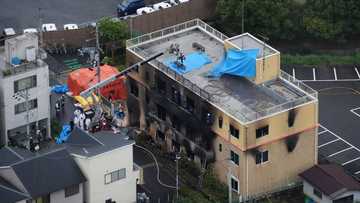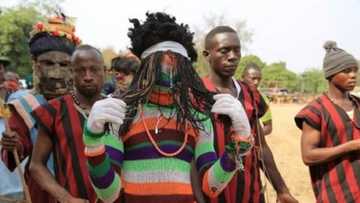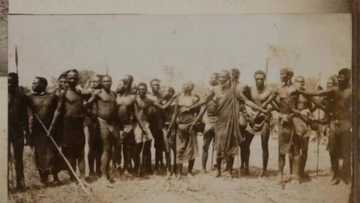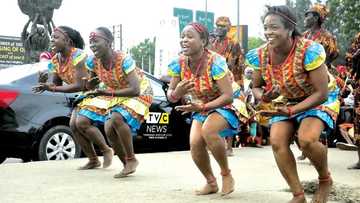History of Argungu fishing festival in Nigeria
Argungu festival is a traditional national event in Nigeria, which happens every year in the northern part of the country. It is one of the most attended and beloved festivals in Nigeria, and of course, it has a deep and interesting history. Go back in history with us and learn many interesting things about Argungu fishing festival.
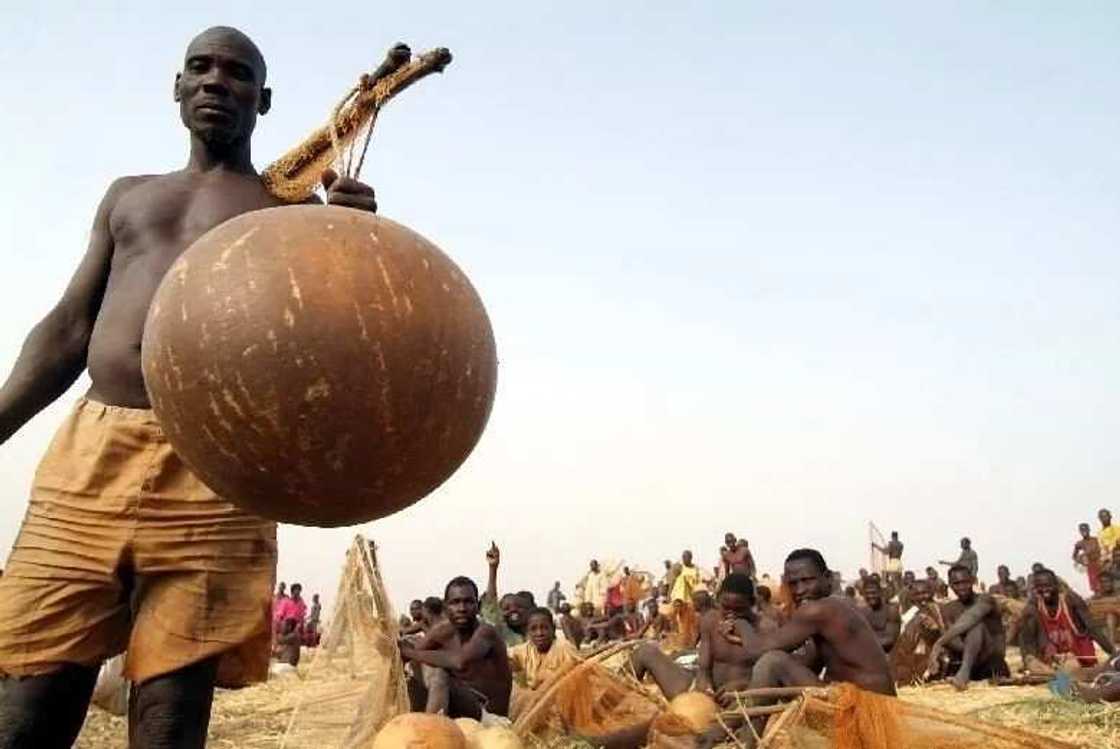
Argungu fishing festival
This event is definitely anticipated for the whole year not only by people who like fishing but also those who enjoy various kinds of celebrations. Argungu fishing festival is one of the oldest traditional festivals in Nigeria The first known Argungu festival took place back in the 16th century. First, it started out as a form of religious rituals. It was considered to be an informal event for families and communities. However, it has gone through lots of modifications and changes since then.

During that time, a couple of important rituals were widely performed in the country. First two were related to water and fishing and were called Gyaran Ruwa and Fashin Ruwa. The other two were more connected with land, and their names were Gyaran Gari and Shan Kabewa and Fura.
These festivals gained a lot of popularity among people and had a large number of attractions and entertainers. However, when the area started adopting Islamic culture, three of these festivals were canceled. Fashin Ruwa was the only one that remained, and many people believe it gave a start to Argungu festival.
Fashin Ruwa was a special festive event that signified the opening of waters for fishing and it had a large relevance among local people. It also became a popular fun event, with musicians, dancers, acrobats, boxers, wrestlers, and other kinds of artistes. Large crowds of people attended the festival and watched the magnificent performances. Soon, it transformed into Argungu international fishing and cultural festival. At first, this festival was supposed to be non-religious, but eventually, it gained some traditional religious notes.
READ ALSO: Festivals in Nigeria and where they are celebrated
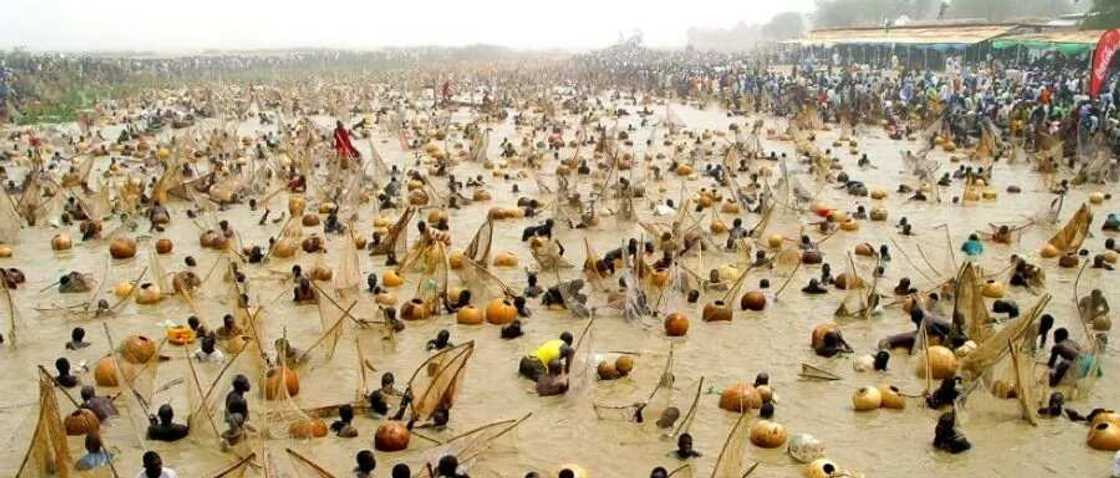
Modern development of Argungu fishing festival
The festival officially resumed in 1934. The historic significance of it is celebrating the end of long hostility between Kebbi kingdom and Sokoto caliphate region. The 1934 festival was known for its large attendance and the presence of officials, an example being Sultan of Sokoto, who was invited by the Emir of Argungu. The Emir council also arranged a huge fishing exhibition, which symbolized the identity of Kabawa. The boxing and wrestling events were canceled since the government felt they were not as entertaining anymore. Thus, the festival was now devoted entirely to fishing.
Since 1934, the government paid special attention to the fishing event in Argungu, trying to make it as festive and memorable as possible. Some large investments were put into the development of the annual fishing celebration. The event takes place every year for four days, and the grand finale usually takes place on Saturday or Sunday.
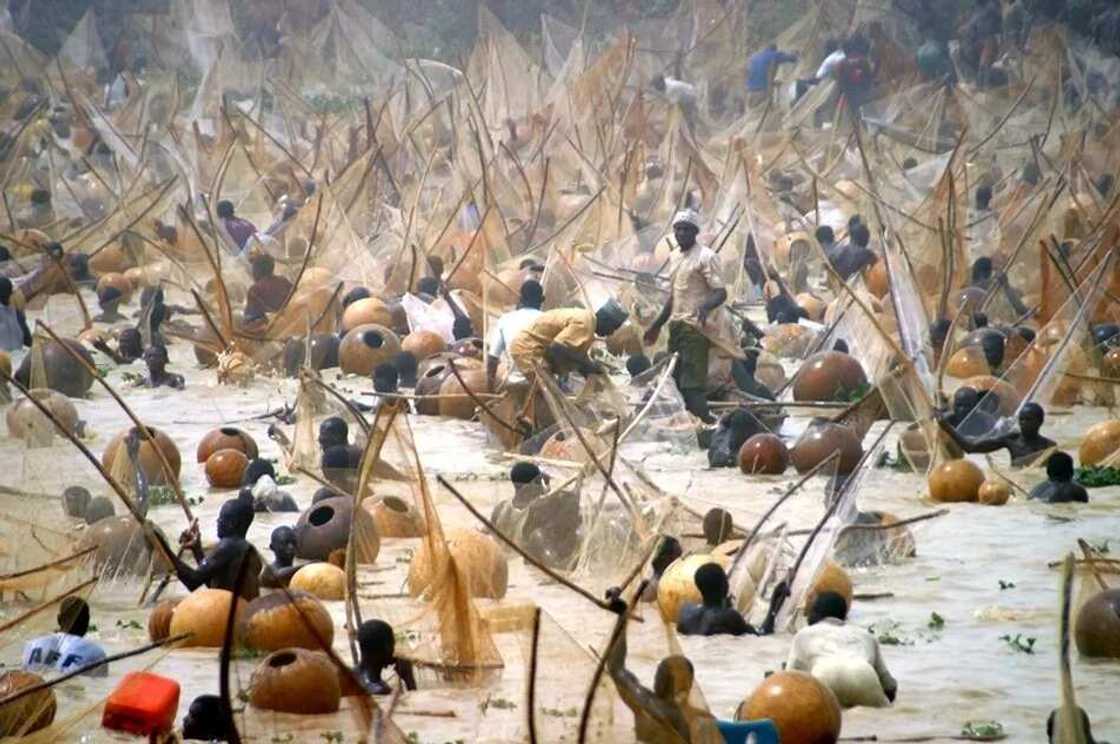
The most active participation of the government in the festival development started in the late 1960s when the Northern Regional Government was established. They invested a lot of money in the restructuring of the event to make it as interesting and exciting as possible for Nigerians and the tourists. There was a strict aim to make Argungu fishing festival a cultural pride of Nigeria, and the organizers succeeded in it.
In 1970, the attendance of the festival reached 100,000 people. More and more government officials started visiting the event, including ambassadors from other countries, and it started attracting more and more regular Nigerians. Even the other Nigerian states have established their own camps in the fishing village. As of today, the Argungu festival is visited by travelers from Europe, the United States, South East Asia, and other African countries like Cameroon, Benin Republic, Niger etc.
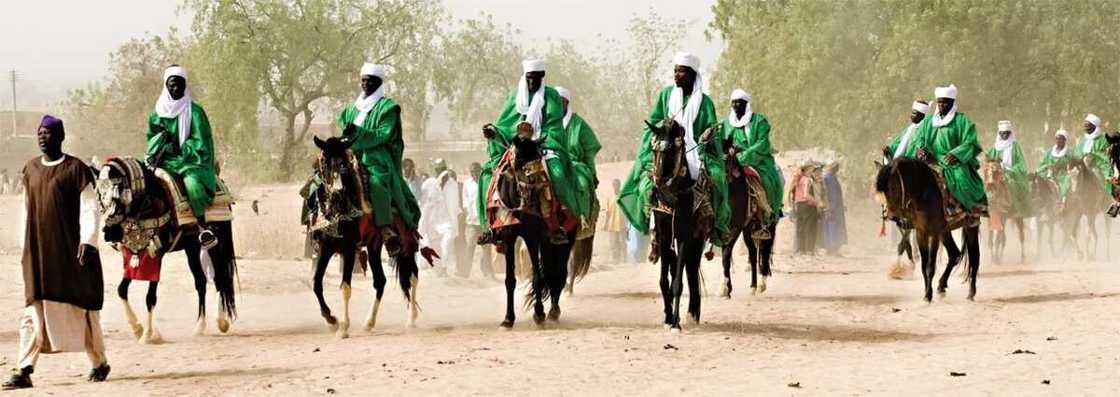
The Argungu festival started attracting various international guests, including music performers and entertainers, in the late 1970s. Nowadays, it has a lot of various activities, which include a grand fishing competition, a diverse agriculture show, craft exhibitions, cultural entertainment, and music compositions. Also, the program includes Kabanci display, which includes different kinds of water competitions – swimming, wild duck catching, fishing with bare hands, canoe races, diving competitions, and the other ones. The archery and motor-rally competitions have been included in the festival program too.
Lots of governors from other states often attend the Argungu festival, and many of them express their gratitude to Kebbi State for organizing this special event over the years. Argungu festival has contributed to the tourism of Kebbi State and entire Nigeria, as the town has become one of the most popular and favourite tourist attractions, and the economy along with infrastructure has rapidly increased. Argungu is now locally and internationally famous, and the festive event is appealing to many guests from all over Africa and the world.
Nowadays, more than 30,000 fishermen participate in the contest every year. The primary highlight of the festival is a large fishing contest, where the person who catches the largest fish wins $7,500. The record was set in 2005 when the winner caught a 75 kg fish, and it is still the largest one in history that was caught on the Argungu festival.
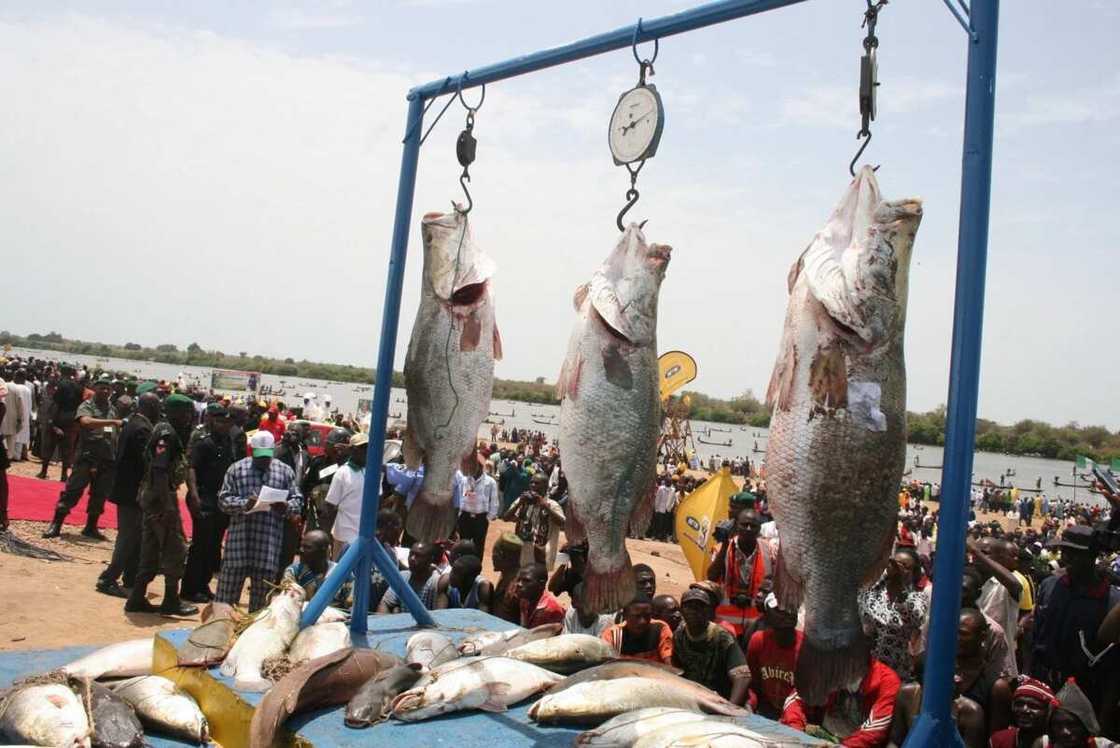
As we can see, the Argungu fishing festival holds a proud place among the traditional festivals in Nigeria, and every person who loves fun and competitions should visit it sometime.
READ ALSO: Igbo festivals and holidays
Source: Legit.ng



